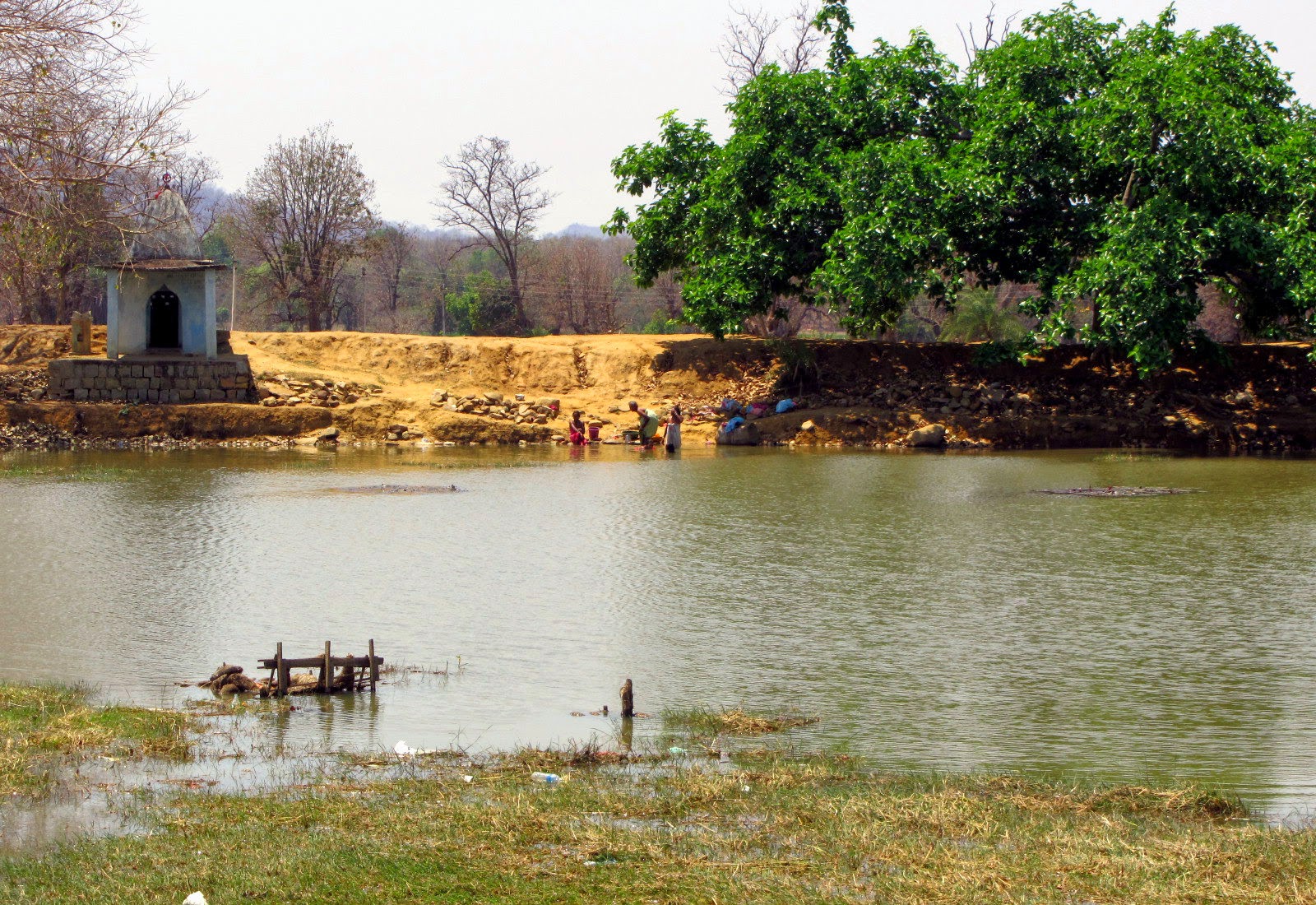Its a beautiful, beautiful day. You know why? Because, a woman forced laborer who I had recently reported about, has just been set free by her employer. Here's the story of her release. You can also read it in the website of IPS News - the media outlet where my story had first appeared.
----------------------------------------------------------------------------------------------------------------------
The first time I met Sri Lakshmi, she was climbing a flight of stairs in a half-constructed building in the residential area of Vanasthalipuram, in the South Indian city of Hyderabad, carrying a stack of bricks on her head. She was a forced labourer, who received no payment for her work. That was in mid-April.
Last week, I met her again. This time, she was carrying something entirely different: a school bag that belonged to her four-year-old daughter Amlu. Lakshmi was a free citizen and Amlu was going to school for the first time.
Separating our two meetings is a story that was published by IPS entitled ‘No Choice but to Work Without Pay’. It was this article that stirred action on the ground, paving the way for Lakshmi’s release.
Here is how it all happened:
----------------------------------------------------------------------------------------------------------------------
The first time I met Sri Lakshmi, she was climbing a flight of stairs in a half-constructed building in the residential area of Vanasthalipuram, in the South Indian city of Hyderabad, carrying a stack of bricks on her head. She was a forced labourer, who received no payment for her work. That was in mid-April.
Last week, I met her again. This time, she was carrying something entirely different: a school bag that belonged to her four-year-old daughter Amlu. Lakshmi was a free citizen and Amlu was going to school for the first time.
Separating our two meetings is a story that was published by IPS entitled ‘No Choice but to Work Without Pay’. It was this article that stirred action on the ground, paving the way for Lakshmi’s release.
Here is how it all happened:
| Sri Lakshmi, a recently released forced labourer, and herfour-year-old daughter Amlu |

